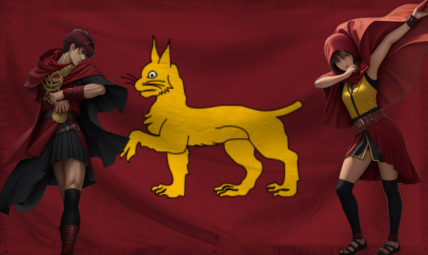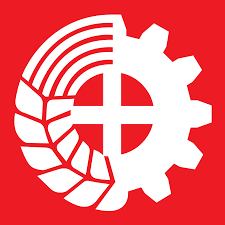To assess the state of civil liberties and political freedom in the Multiverse, the government of Plaetopia has elaborated its very own Democracy and Freedom Index, based on several indices seen both in the Multiverse and in Real Life Earth. Nations are assessed based on 4 different categories plus an additional optional one, and classified in 5 categories based on the conduct and integrity of elections, separation of powers, the adequate functioning of the government, civil liberties enjoyed by the population, and legal equality or discrimination based on gender, religion, ethnicity or any similar grounds.
The Questionnaire
Please fill the following questionnaire to get your nation assessed:
- Code: Select all
[b]ELECTIONS[/b]
[b]How was the head of state (or other chief national authority) selected? What powers does the office exercise?[/b]
[b]How was the head of government selected? What powers does the office exercise?[/b]
[b]How is the national legislature selected?[/b]
[b]Are elections considered free and fair? Are irregularities serious enough that they alter the results significantly?[/b]
[b]Does the opposition have a realistic chance of gaining support and power through elections?[/b]
[b]Is voting voluntary? If so, which was the average turnout in recent elections?[/b]
[b]SEPARATION OF POWERS AND FUNCTIONING OF GOVERNMENT[/b]
[b]In case national representatives were freely elected, are they able to succesfully develop and implement new policies? Does government authority extend over the full national territory?[/b]
[b]Do foreign powers (democratic or not), or unelected entities (the military, religious or economic oligarchies...) exercise undue influence over the government?[/b]
[b]Does the legislature have the legislative initiative? What restrictions are placed on its ability to pass laws, including constitutional amendments?[/b]
[b]Is the executive able to subvert the legislature through legal or extralegal means (such as arbitrary dissolutions, lack of an adequate budget, or vetoes)?[/b]
[b]From 0-10 (0 = clean, 10 = most corrupt), how pervasive is corruption (in government, business, etc.)?[/b] [i](Small explanation appreciated)[/i]
[b]From 0-10 (0 = completely opaque, 10 = completely transparent), how transparent is government activity?[/b] [i](Small explanation appreciated)[/i]
[b]Is there an independent judiciary, or is it subject to political pressure?[/b]
[b]CIVIL LIBERTIES[/b]
[b]Is there an independent media?[/b]
[b]Is there freedom of religion, including non-belief?[/b]
[b]Is education free of political interference or indoctrination?[/b]
[b]Are citizens able to express dissent in practice, without fearing retribution? How pervasive is surveillance?[/b]
[b]Is there freedom of assembly? Are peaceful protests allowed, and are they able to proceed in practice?[/b]
[b]Are there basic guarantees of due process (in civil and criminal matters), and are they upheld in practice?[/b]
[b]Are independent trade unions and NGOs able to operate freely?[/b]
[b]Do individuals enjoy freedom of movement inside the country and of international travel, including in education, residence or employment?[/b]
[b]Do individuals enjoy basic social freedoms (do they have control over appearance? are they able to freely choose marriage partners and size of family? how common is domestic and sexual violence?)?[/b]
[b]Are individuals able to freely set up their own business? Are property rights adequately protected?[/b]
[b]PARTICIPATION AND GUARANTEES OF EQUALITY[/b]
[b]How is citizenship determined? Include a brief overview of the naturalization process, if available.[/b]
[b]Who is able to vote in elections, if they exist at all?[/b]
[b]Are different segments of the population (men, women, the LGBT community, ethnic minorities...) treated equally in law and in practice?[/b]
[b]Are the above groups well represented in government?[/b]
[b]Do individuals have realistic opportunities for upward social mobility?[/b]
[b]OPTIONAL ADDITIONAL QUESTIONS[/b]
[b]Are the government or nonstate groups deliberately and systematically changing the demographics of the country so as to dilute or eliminate a particular group?[/b]
[hr][/hr]
[b]Any suggestions for future editions of the index?[/b]
To assess a particular country, a decimal score ranging from 0 to 1 will be assigned to every question based on the responses and then divided by the number of questions to get the average. Finally, it will be multiplied by 10 to get a score ranging from 0 to 10.
The score of the additional question has been modified so that it affects all nations equally. The score assigned to this question ranges from -1 to 0 and will incur a fixed penalization of half the question's score.
For accurate scoring, please give some detail to answers instead of simple Yes/No responses. All questions in the first 4 categories must be answered to receive a score. Nations that fail to answer all mandatory questions will be compelled to do so once, and not scored at all until they do. If your nation has not been scored despite answering all questions, it might have been accidentally skipped, please notify Plaetopia if so.
Freedom Classification
Nations will be classified in 5 categories based on their score:
Free (score 8-10): a government truly committed to political pluralism. Dissent is tolerated and public debate is robust. The rights of minorities are guaranteed, civil rights are respected, the government is mostly transparent and actually capable to rule, and corruption is rare. Any gaps on civil liberties or political freedoms are relatively minor.
Mostly Free (score 6-8): a government mostly committed to political pluralism. Dissent is generally tolerated and public debate is robust, though certain sensitive topics might be off-limits. While civil liberties and political freedom are respected, there could be important deficiencies such as concentration of power by ruling elites, unchecked corruption, or discrimination against vulnerable groups. There is hope of further reform and improvement.
Partly Free (score 4-6): a regime that tolerates some dissent but also displays noticeable authoritarian characteristics. Problems in mostly free nations are more serious, and the government is likely to slide into authoritarian rule if there is not sustained pressure from civil society and citizens to mantain and carry on with democratic reforms.
Mostly Unfree (score 2-4): the government in nations in this category are not truly committed to political pluralism and seek to consolidate power. However, authorities are still willing to give the population some limited concessions, such as autonomy for minority groups or limited displays of dissent. Corruption may be pervasive or government authority may not extend over the entire national territory.
Not Free (score 0-2): nations in this category are consolidated authoritarian states that allow its citizens few to no opportunities to challenge the government in any way. Citizens are unable to exercise basic civil rights, severe repression is routine, and the government often controls most economic activity. Alternatively, nations in this category might be ravaged by severe conflict that precludes the exercise of civil and political freedoms.
A country is placed on the highest category possible, i.e. a country with a score of exactly 8 is Free, while a country with a score of exactly 4 is Partly Free.
Democracy Classification
A nation will be classified as a democracy if its score in the Elections questionary category is at least 4/6 with no question other than 6 having a score of 0, and its score in question 4 is at least 0.75/1. A nation will be classified as a full democracy if it fulfills the above criteria and its overall score is 9 or higher.
Changes from the first edition and concerns
This is the second edition of the survey, and incorporates the suggestions that other nations gave for the first, as well as other improvements that the government of Plaetopia has deemed necessary:
- Minor clarifications in some questions
- The survey now covers undue influence by external powers through a new question
- The survey now covers social mobility and equality of opportunity through a new question
- The survey now covers the division of powers between the head of state and the head of government for more accurate scoring
- A new question was added to consider the chances of opposition of a peaceful rise to power
- The survey now covers civil society through a new question
- "Singular" nations that are difficult to assess through the survey will be highlighted after scoring
- New scoring & classification system that distinguishes between "free" and "democratic" nations
- Provisional scores have been eliminated







